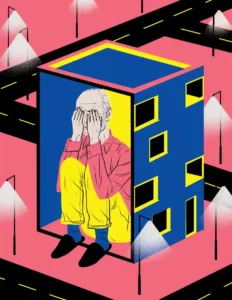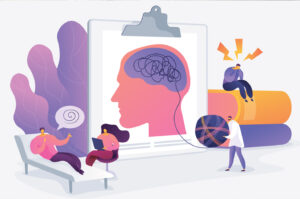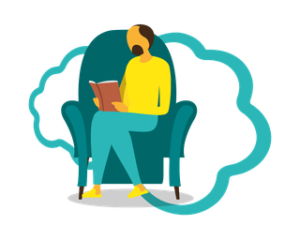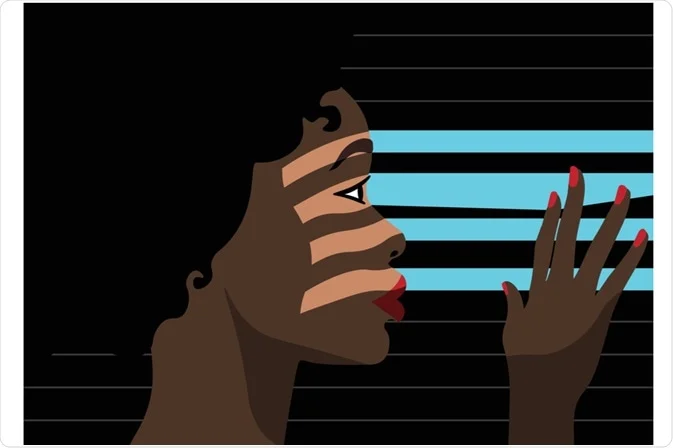Agoraphobia is a debilitating anxiety disorder that can make it difficult or impossible to leave home. People who suffer from agoraphobia often have a fear of being in public places or open spaces. This can lead to social isolation and a feeling of helplessness. If you are struggling with agoraphobia, don’t despair! There are treatment options available that can help you overcome this condition and regain your life. In this blog post, we will discuss the different types of treatment for agoraphobia and the steps you need to take toward recovery.
Contents
Defining Agoraphobia

Agoraphobia is an anxiety disorder that is characterized by a fear of being in situations where escape might be difficult or impossible. This can include being in open spaces, public places, enclosed spaces, or in crowds of people. People with agoraphobia often have a fear of having a panic attack in these situations. As a result, they may avoid leaving home altogether or may only do so with great difficulty.
It is important to note that agoraphobia is not simply a fear of certain places or situations. It is a debilitating condition that can have a major impact on your life. If you suffer from agoraphobia, you may be unable to work, go to school, or even leave your home. This can lead to social isolation and feelings of hopelessness.
Recognizing The Signs Of Agoraphobia
If you think you might be suffering from agoraphobia, it is important to seek help from a mental health professional. They will be able to assess your symptoms and give you a diagnosis. Some of the signs that you may have agoraphobia include:
- Avoiding situations that make you feel anxious
- Feeling trapped or helpless in an anxiety-provoking situation
- Fear of having a panic attack
- Avoiding going places where help might not be available if you have a panic attack
- Having a fear of dying or losing control
- Experiencing anxiety when thinking about leaving home
- Physical symptoms such as racing heart, sweating, shaking, or shortness of breath
- Not leaving home or going out in public
- Only leaving home with the assistance of someone else
- Missing work or school due to anxiety
- Experiencing financial difficulty due to agoraphobia
- Having a fear of open spaces, enclosed spaces, crowds, or public places
Agoraphobia can be a very isolating condition. If you are struggling with this disorder, it is important to reach out for help. There are treatment options available that can make a big difference in your life. With the right help, you can overcome agoraphobia and regain your freedom.
When To Seek Agoraphobia Treatment?
If you experience any of the given signs daily, you should consider seeking anxiety treatment. Some tell-all signs include:
- Your fear limits your ability to travel, work, go to school or perform other daily activities.
- Experience intense anxiety when thinking about leaving home or being in a situation where help might not be available.
- Only feeling safe when you’re with someone else.
- You’ve had panic attacks or your anxiety is so severe that it’s interfering with your quality of life
- Constantly feel like there’s no way out and that you’re trapped
- Experiencing intense anxiety when thinking about the inevitable future events
If you think you might have agoraphobia, it is important to seek professional help. This disorder can have a major impact on your life and it is not something that you can simply “snap out of”. If you are avoiding situations due to anxiety or fear, this is a sign that you need help. Do not try to tough it out or suffer in silence. Seek professional help as soon as possible!
Treatment For Agoraphobia
Several different types of treatment can be effective for agoraphobia. The type of treatment that is right for you will depend on the severity of your symptoms and your personal preferences. The most suitable type of treatment also depends on the severity of your symptoms and how well you respond to different types of available agoraphobia treatments.
Professional Help

Some common treatment options for agoraphobia include:
Medication
Medication can be used to treat the symptoms of anxiety and help you to cope with fear. Some common medications that are used to treat agoraphobia include antidepressants, beta-blockers, and anti-anxiety medication. They help by reducing the physical symptoms of anxiety, such as racing heart and shaking through relaxation techniques. When seeking medical treatment, it is important to consult with a mental health professional to ensure that the medication is right for you and that it will not interact negatively with any other medications that you are taking.
Psychotherapy
Psychotherapy is a type of counseling that can help you manage your anxiety and fear. It can also help you understand the thoughts and feelings that are causing your agoraphobia. The process of psychotherapy involves exploring your thoughts and feelings in a safe and supportive environment. It is usually conducted by a licensed mental health professional, such as a psychiatrist, psychologist, or social worker.
Applied relaxation
Applied relaxation is a type of therapy that teaches you how to relax your body in response to anxiety-provoking situations. This can help you to manage your fear and reduce the physical symptoms of anxiety. It works by helping you to identify situations that make you anxious and then teaching you how to relax your body in response to them. It involves techniques such as progressive muscle relaxation and deep breathing.
Cognitive-behavioral therapy (CBT)
CBT is a type of therapy that can help you to change the way you think about anxiety and fear. This can be an effective treatment for agoraphobia, as it can help you to learn how to manage your anxiety and cope with difficult situations. It typically lasts for 12-16 weeks. CBT usually involves weekly sessions with a therapist. It works by helping you to identify the thoughts and beliefs that are causing your anxiety. You then work on changing these thoughts and beliefs. This can help you to reduce your anxiety and improve your quality of life.
Exposure therapy
Exposure therapy is a type of CBT that involves gradually exposing yourself to the situations or places that make you anxious. This can help you to overcome your fear and gain confidence in your ability to handle difficult situations. The treatment procedure involves gradually exposing yourself to the situations that make you anxious. This exposure is done in a safe and controlled environment. It can help you to confront your fears and learn how to manage them healthily. Exposure therapy usually starts with small steps and then gradually builds up to bigger challenges. The aim is to help you become less afraid of the situations that make you anxious.
Support groups
Support groups provide a space for people with agoraphobia to share their experiences and connect with others who understand what they are going through. This can be a valuable resource for information and support. They can also provide a sense of community and belonging. There are many different types of support groups available. You can find one that fits your needs and interests.
Self Help Strategies

In addition to therapy and medication, there are several self-help strategies that canseveral self-help strategies can be useful in managing agoraphobia. These include:
- Identifying and challenging your negative thoughts about anxiety and fear: This can help you to change the way you think about anxiety and fear. It can also help you to reduce your anxiety.
- Exposing yourself to feared situations: This can help you to overcome your fear by gradually exposing yourself to the situations that make you anxious. This exposure is done in a safe and controlled environment. It starts with small steps and then gradually builds up to bigger challenges.
- Build self-confidence: This can help you to feel more confident in your ability to handle difficult situations. It also helps to reduce your anxiety and further improve your quality of life.
- Building up a support network: This can be a valuable resource for information and support. Support groups can provide a sense of community as well as belonging. You can also connect with others who understand what you are going through.
- Exercise: Exercise can help to reduce the symptoms of anxiety and improve your mood. It is also a great way to reduce stress. Try to get at least 30 minutes of exercise per day.
- Healthy diet: Eating a healthy diet can help you to manage your anxiety and improve your overall health. Avoid caffeine and sugary foods, as they can make anxiety worse.
- Get enough sleep: Sleep is important for both your physical and mental health. Getting enough sleep can help you to reduce stress and improve your mood.
- Avoid alcohol and drugs: Alcohol and drugs can make anxiety worse. If you are struggling with substance abuse, get help from a professional.
Agoraphobia can be a difficult condition to live with, but there are treatments available that can help you to manage your anxiety and fear. If you think you might have agoraphobia, it is important to speak to a mental health professional for an accurate diagnosis and developing an effective treatment plan.
Things To Consider

If you are considering treatment for anxiety, it is important to keep certain things in mind. These include:
Research: Be sure to do your research before starting any treatment. This includes talking to your doctor about the risks and benefits of various treatments.
Finding the right professional: This means finding a mental health professional who is qualified to treat anxiety disorders. Ensure to cross verify their credentials, reviews and recommendations before consultation.
Cost: Treatment for anxiety can be expensive. Make sure to speak to your insurance provider to see if they cover the cost of treatment.
Time commitment: Treatment for anxiety often requires a significant time commitment. It is important to make sure you have the time available to commit to treatment.
Effectiveness: The effectiveness of treatment varies from person to person. Make sure you understand what the expected outcome of treatment is before you begin.
Comfort: It is important to feel comfortable with the treatment you are receiving. If you do not feel comfortable, make sure to further speak to your mental health professional about your concerns.
Support: It is important to have a support system in place when you are dealing with anxiety. This can include family, friends, or a support group.
Relapse is possible: Anxiety can be a chronic condition, which means that it may come and go over time. If you have a relapse, don’t get discouraged—seek help from your mental health professional to get back on track.
Treatment for agoraphobia can be difficult, but there are many options available. With the help of a mental health professional, you can develop an effective treatment plan that meets your needs and helps you to overcome your anxiety. Remember, recovery is possible. You can live a full and fulfilling life despite agoraphobia. Treatment can help you get there.
Conclusion
In conclusion, agoraphobia is a condition that can be difficult to live with, but there are treatments available that can help you to manage your anxiety and fear. If you think you might have agoraphobia, it is important to speak to a mental health professional for an accurate diagnosis. Once you have received a diagnosis, they can work with you to develop a treatment plan that best suits your needs. With the right treatment, you can learn how to manage your anxiety and live a full and meaningful life.
For more information, please contact MantraCare. Anxiety is a common mental health condition characterized by persistent feelings of worry, fear, and apprehension. If you have any queries regarding Online Anxiety Counseling experienced therapists at MantraCare can help: Book a trial Anxiety therapy session


